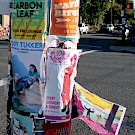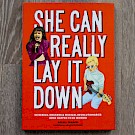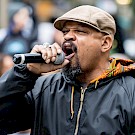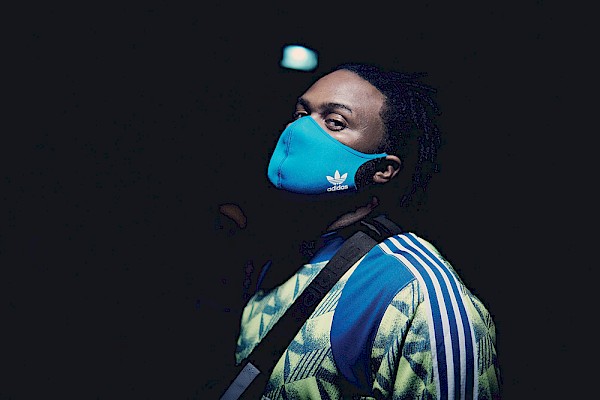 Brookfield Duece: Photo by Kevin AllenIn a year clouded with police brutality, protests, governmental incompetence, wildfires, and a global pandemic, a silver lining has emitted rays of hope for independent artists.
Brookfield Duece: Photo by Kevin AllenIn a year clouded with police brutality, protests, governmental incompetence, wildfires, and a global pandemic, a silver lining has emitted rays of hope for independent artists.
For decades, to sell records, artists have had to abandon creative rooms for diplomatic ones. Yet, in this era of competing for attention through viral moments, radio or playlist payola, and endless DIY resources, greasing the palms of the industry and encouraging fans to follow popularity over musical potency have taken a backseat. Today, we’re in a renaissance of artists responding to fans desiring art that requires time to appreciate because we’re sheltered in place. Marketing things that are toxic towards women, race and culture are looked down upon more each day.
The cloud that was 2020 is actually opening the eyes of a ton of people, making this year potentially the best and worst year simultaneously for both humankind and our art.
For nearly the past decade, I’ve been a resident of both Oakland and Portland as a family and hip-hop scene member. Both of these cities, which I call home, are huge participants in this uprising. Protesting and music are two things these cities do very well. Marketing both? Not so much.
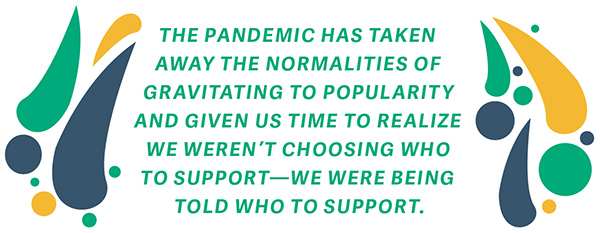 Our collective pride in maintaining high levels of social awareness and musical innovation—and being respected for it—has attracted labels and their artists from around the world to visit these lands to consume the knowledge of art and social purpose, only to quickly return home to their already built musical infrastructure with our culture. Oakland and Portland weren’t equipped to protect and market our art.
Our collective pride in maintaining high levels of social awareness and musical innovation—and being respected for it—has attracted labels and their artists from around the world to visit these lands to consume the knowledge of art and social purpose, only to quickly return home to their already built musical infrastructure with our culture. Oakland and Portland weren’t equipped to protect and market our art.
Artists rooted in direct-to-consumer platforms such as Bandcamp and Shopify were dominated by digital streaming giants like Apple and Spotify while major labels bought all their front-page real estate... then Covid-19 changed the world, including the world of music.
Everyone was sheltered in place, yet police continued to kill Black men and women on camera and go home unindicted. The music industry, wary of cancel culture, took a big step back from artists creating music perpetuating lies, glorifying the downfall of the Black community, or disrespecting women. This change happened in what felt like a day’s time.
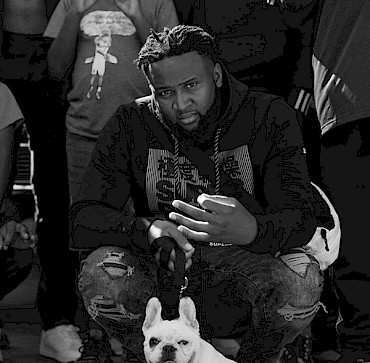 Photo by Kristopher “Squint” SandiferThe sun rose the next day to artists being appreciated for their art. Merch sales are up, sometimes for no other reason but partiality; spending money on clothing doesn’t make sense if it’s coming from designers who don’t support movements of change today.
Photo by Kristopher “Squint” SandiferThe sun rose the next day to artists being appreciated for their art. Merch sales are up, sometimes for no other reason but partiality; spending money on clothing doesn’t make sense if it’s coming from designers who don’t support movements of change today.
Artists pressing vinyl and cassettes for nostalgia are now selling out of them and inspiring fans to buy record players. Low-budget releases have become exclusive, limited-edition runs that generate faster sales; meanwhile, fans take the time to listen to albums, read liner notes, frame artwork, and collect merch no one else can get. Live shows that were deemed unsuccessful if only 100 people attended are now sellouts due to social distancing rules in those larger venues that are still operating. Even your Instagram live is now a venue.
The pandemic has taken away the normalities of gravitating to popularity and given us time to realize we weren’t choosing who to support—we were being told who to support. That choice belongs to the people a lot more now. And the courage, independence and uniqueness of both Oakland and Portland’s artists have benefitted from this change by staying the course and not panicking in a pandemic.
Brookfield Duece is a multi-disciplinary artist, A&R for Front Page Music, co-founder of hip-hop collective Grand Nationxl, and co-host of Grand Nationxl Radio on XRAY.fm.



